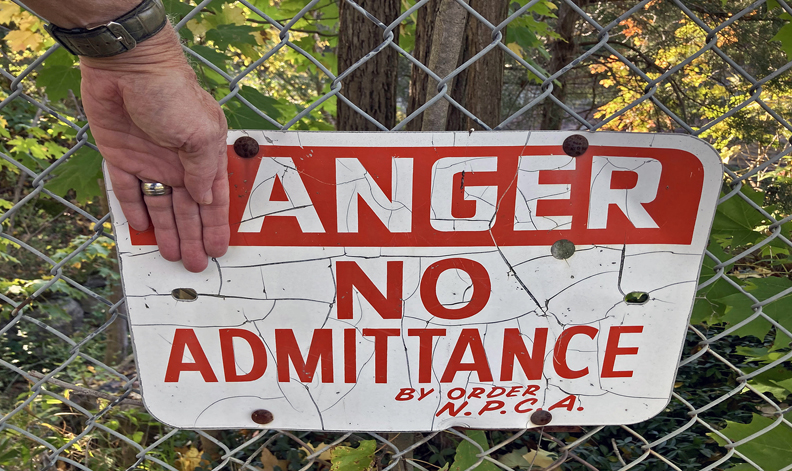
(Thomas Froese Photo)
(The Hamilton Spectator, Saturday, December 11, 2021)
She’s a friend, a literary academic who’s learned and gracious, a woman of faith who – while the pandemic continues to spin and dance out there – often foregoes going out. This, in order to protect her vulnerable husband.
We talked about the vaccine – she’s fully vaccinated – and about people who are still hesitant about the jab. “I don’t know how to love them,” she said. “I find that this is the hard part, not being angry at them. And I don’t know what to do with that.”
Anger. It’s been the story of the year in 2021, if not the story of any year. Sometimes we might be incensed for entirely sound reasons, like my friend’s. Sometimes anger is more a result of that shaky and hopeless “Us versus Them” view of life.
Yes, anger, among the deadliest of the seven sins, can still have a sort of fun, if not short-lived, season in the sun. I mean, why not get angry at those pebble throwers? They’re angry at us!
The good news is that Canada is a fortunate nation where adult vaccination rates are among the highest in the world. The bad news is that even a good political state, one that makes all the right moves (and what state does?), still operates within grinding machinations that can be horribly impersonal.
So it’s not helpful to get smug when considering the unvaccinated or the consequences – “Sorry, no admittance” – that they bring upon themselves. Earlier this year, while in Winnipeg, (an easy place to get angry at during Grey Cup weekend), I talked about this with an unvaccinated gentleman. I suspect this is what he meant. Don’t get smug.
Still, when he compared Canada to the former East German Communist state, I could have choked on my soup. Even in their most bungled moments, no Canadian government has laid barbed wire atop a concrete wall before machine-gunning down anyone trying to escape.
Alexander Solzhenitsyn, a former Soviet dissident who won the Noble Prize for Literature, knows something about it. If anyone could have raised an angry fist against the state, it would be Solzhenitsyn. After spending years inside the Soviet’s notorious Gulag system, prison-labor camps where more than one million people perished, he wrote about the brutality.
Even so, in The Gulag Archipelago, a book that Time Magazine called the most important of the 20th century, Solzhenitsyn said this: “If only there were evil people somewhere insidiously committing evil deeds, and it were necessary only to separate them from the rest of us and destroy them. But the line dividing good and evil cuts through the heart of every human being.”
Which is to say that the line dividing good and evil cuts through both the communist heart and the democratic heart. The black heart and the white heart. The urban heart and the rural heart. The rich heart and the poor heart. And, sure, the vaccinated heart and the unvaccinated heart, that is my heart and your heart and every other striped or polka-dotted heart out there.
Later, banished by the Soviets, Solzhenitsyn wrote from the United States for some decades before returning to his Russian homeland where he died in 2008. He comes to mind because today, Dec. 11, is his birthday. More so, voices like his, voices that unite reason and faith in a rather beautiful marriage, are the clarion calls that will help us find our way out of the forest of any angry time.
I recently reacquainted myself with one Solzhenitsyn article, aptly titled “A World Split Apart.” It’s published in a collection of stirring essays called Finding God at Harvard. The book’s various contributors all see a certain grandeur in our world, even when it seems that we humans want nothing more than to blow it up.
I suspect that my above-noted literary friend would appreciate this sort of collection. Christmas, after all, is coming. Maybe some others would appreciate it too.

Thanks for the article on Anger this morning in the Waterloo Region Record. I found Solzhenitsyn’s article online. Both are so relevant and puts it all in perspective. Very appreciated.
That’s one of the beauties of the net, to be able to find some worthwhile work. Glad you found Solzhenitsyn’s, Jane.
Anger, the story of the year, another thought provoking article. I appreciate how you remind us that issues
such as anger, have existed over long periods of time and over wide geographical
regions, and the solutions to them require both the human and the divine.
Blessings to you and yours during this Christmas season and the year ahead.
Peter D
Well put, Peter. The human and the divine, both. Christmas season is a good reminder of that arrangement.